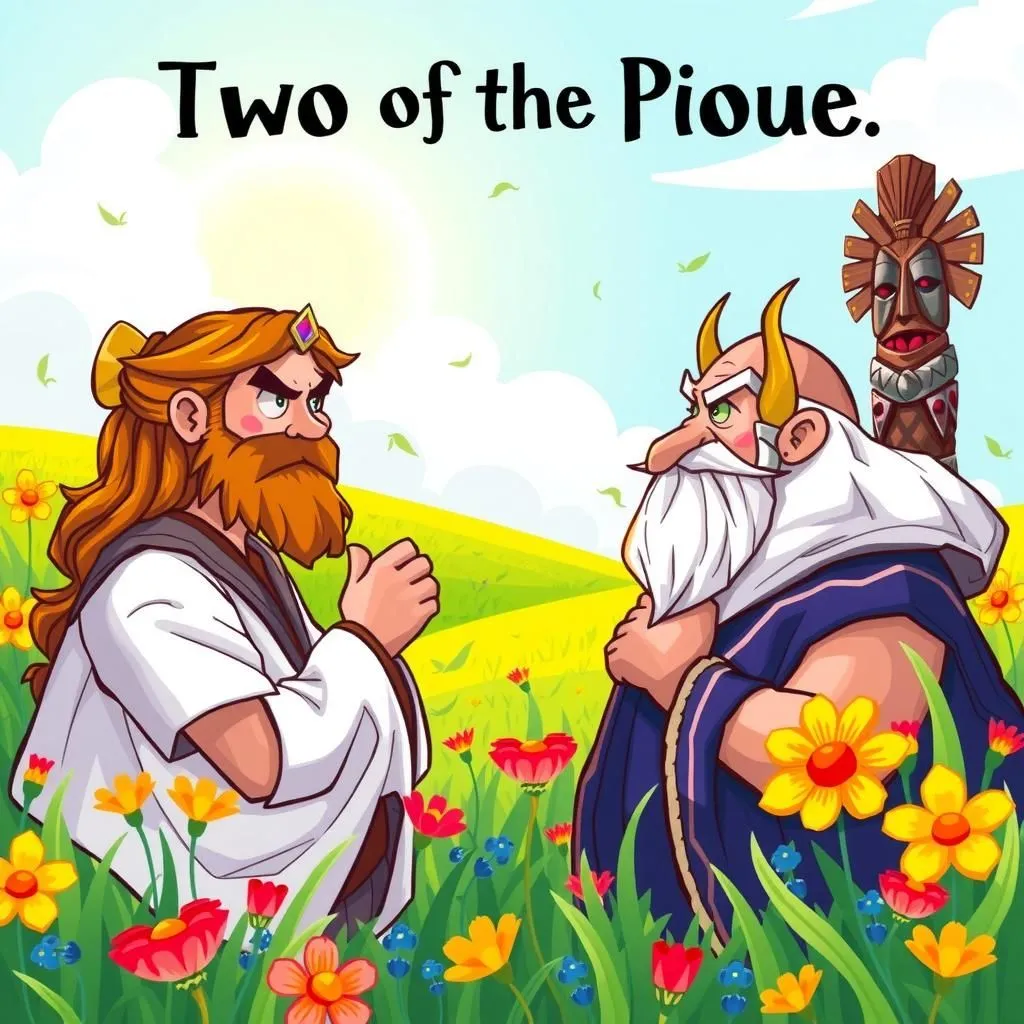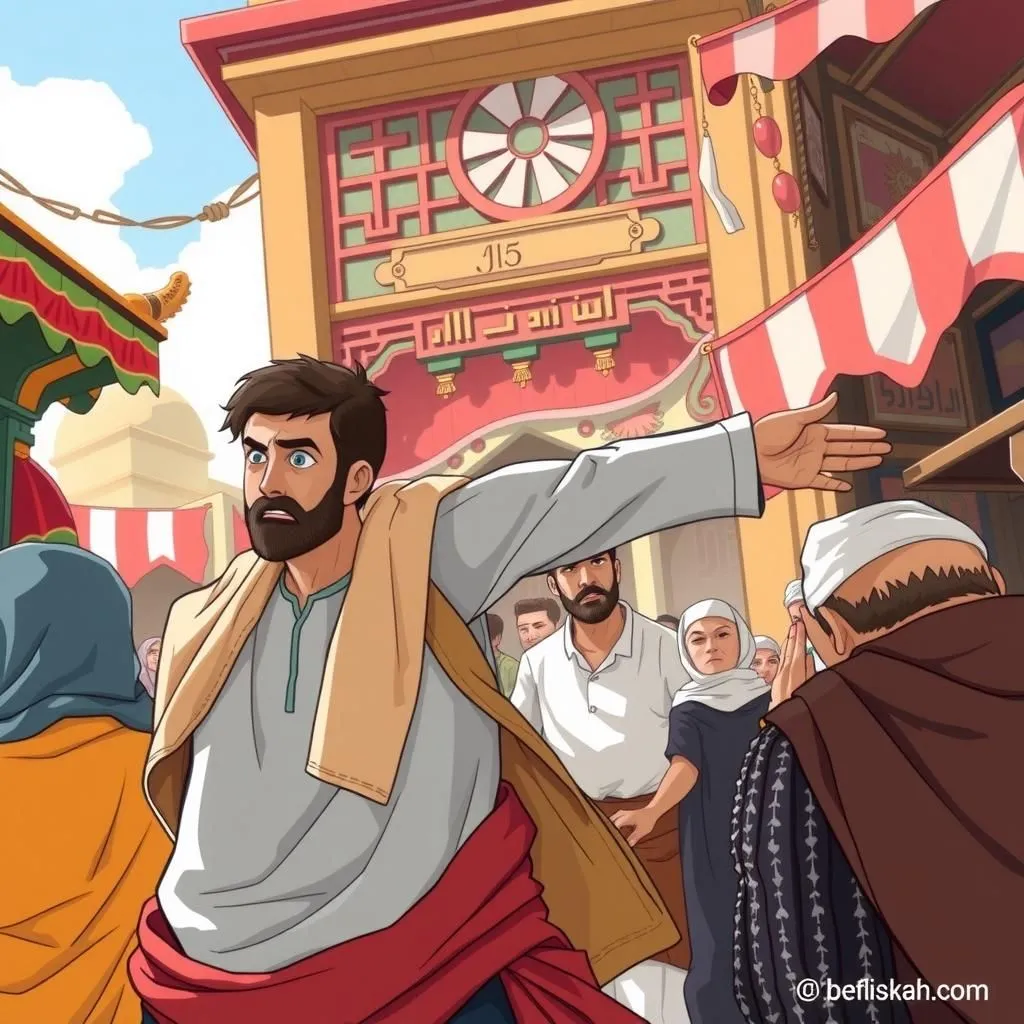
The Man and His Two Wives
In this very short moral story, a middle-aged man with two wives—one young and one old—struggles to satisfy their conflicting desires regarding his appearance. The young wife removes his grey hairs to make him look younger, while the elder wife plucks out the black ones to avoid resembling his mother. Ultimately, his efforts to please both lead to his complete baldness, illustrating the lesson that trying to satisfy everyone can result in losing everything—a heartwarming tale with a clear moral.


